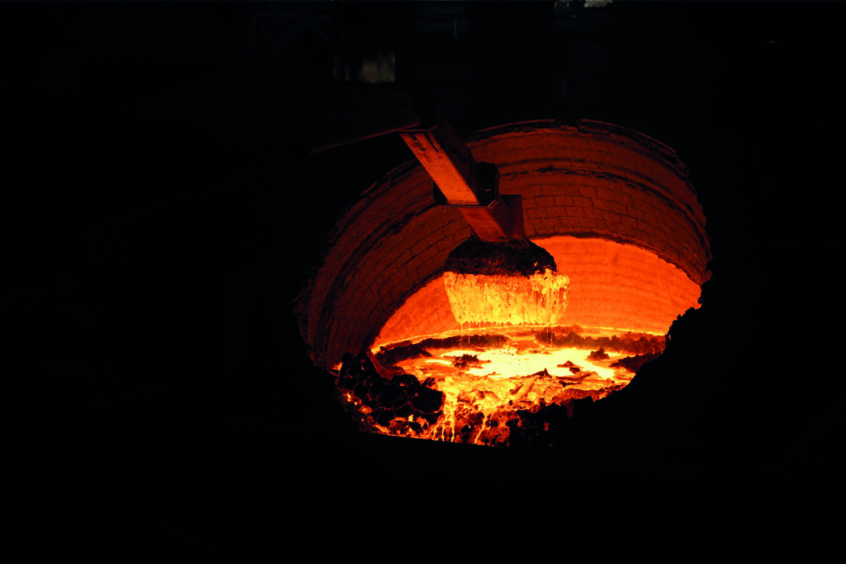
Steel and other industrial sectors have written to industry minister Sarah Jones to express their concerns over the impact of net-zero policies on energy-intensive industries.
In the letter, they highlighted the high electricity costs faced by the industrial sector and cautioned against the potential for “deindustrialisation” in the pursuit of sustainable economic growth.
It said: “Many industrial decarbonisation projects rely on changes to behind-the-meter configurations or grid enhancements that under these proposals are likely be disadvantaged.
“We would therefore like to see the government’s 2030 objectives for industrial decarbonisation given the same priority as electricity decarbonisation in terms of network connections.”
They warned that energy costs in the UK remain among the highest for industries compared to Europe, Asia, or the US. Even with government mechanisms like the “British industry supercharger” in place, which is designed to reduce the cost of power in energy-intensive industries, a “substantial gap still remains” in electricity pricing across various sectors, according to industrial businesses.
Representatives from these industries—including steel, metals, glass, ceramics, chemicals, refineries, paper, and mineral products—expressed their support for the government’s goals of enhancing economic growth while achieving net-zero targets.
As employers, they said their sectors are crucial in the transition to decarbonisation technologies. However, they noted that high electricity costs, policy uncertainty, and the risk of carbon leakage hinder their ability to invest competitively in the UK.
To address these challenges, the companies proposed increasing the rate of compensation for network charges from 60% to 90%, to align UK network charges more closely with those in key European countries.
The letter highlighted that many European nations have implemented special network charging arrangements for electricity-intensive industries, offering almost full relief from charges.
Industrial businesses raised concerns about the potential for “supply disruptions” as the transition to low-carbon energy continues.
“As other European markets similarly move towards low-carbon energy systems, this increases the likelihood of supply disruptions without recourse to firm, dispatchable energy,” they warned in the letter last week.
The industrial representatives emphasised a “critical” need for a secure energy supply for energy-intensive industries and voiced concerns over reliance on intermittent energy sources.
They said the government’s 2030 clean power action plan, which prioritises low-carbon power over industrial decarbonisation, depends on electricity interconnectors between the UK and Europe, which does not account for the exposure of those markets to intermittent energy generation.
“Security of energy supply is critical for energy-intensive industries,” the letter said, cautioning that the increasing prevalence of intermittent technologies and shifting geopolitical circumstances have heightened supply risks.
They noted that continued financial support for decarbonisation, including electrification, remains unclear. They described the lack of clarity as a significant barrier to unlocking private investment for widespread industrial decarbonisation across the UK economy.
Energy-intensive industries “will not be able to bear” carbon costs under the emissions trading system, of about £142 per tonne, without an effective border adjustment mechanism and a lack of decarbonisation technologies, according to the letter.
The businesses called the move to the UK carbon border adjustment mechanism (CBAM), due in 2027, a crucial step to help British energy-intensive industries compete internationally while avoiding the risk of carbon leakage from countries with little or no carbon pricing.
They stressed that the UK CBAM requires significant improvements to be effective, and free of loopholes, in order to prevent negative unintended consequences.
The businesses cautioned that the plan to implement the UK CBAM risks creating trade barriers and diverting trade with the EU.
They argued that successful industrial decarbonisation will necessitate a mix of carbon capture, usage and storage (CCUS), hydrogen, electrification, and improved energy efficiency.
While UK gas prices remain “competitive” compared to Europe, the letter called for exemptions for gas-intensive industries from any new levies or charges on electricity and gas prices that could undermine their competitiveness.
The businesses also expressed disappointment over the cancellation of the second industrial energy transformation fund (IETF) competition.
Signatories included Arjan Geveke, director of the Energy Intensive Users Group, along with representatives from British Glass, Ceramics UK, the Chemical Industries Association, the Confederation of Paper Industries, Fuels Industry UK, the Mineral Products Association, UK Steel, and the GMB Union.
Recommended for you

